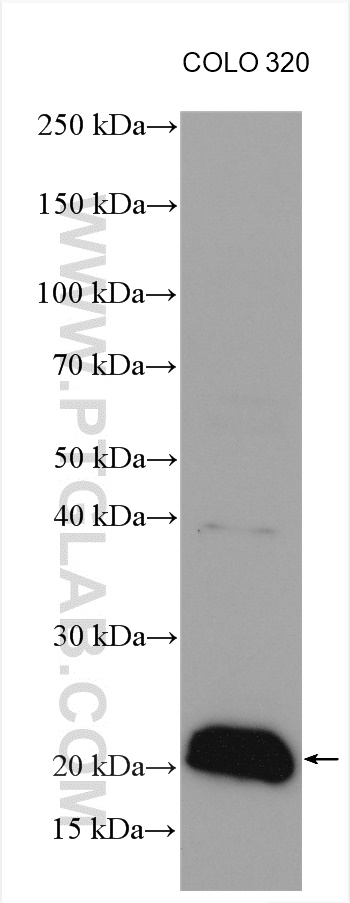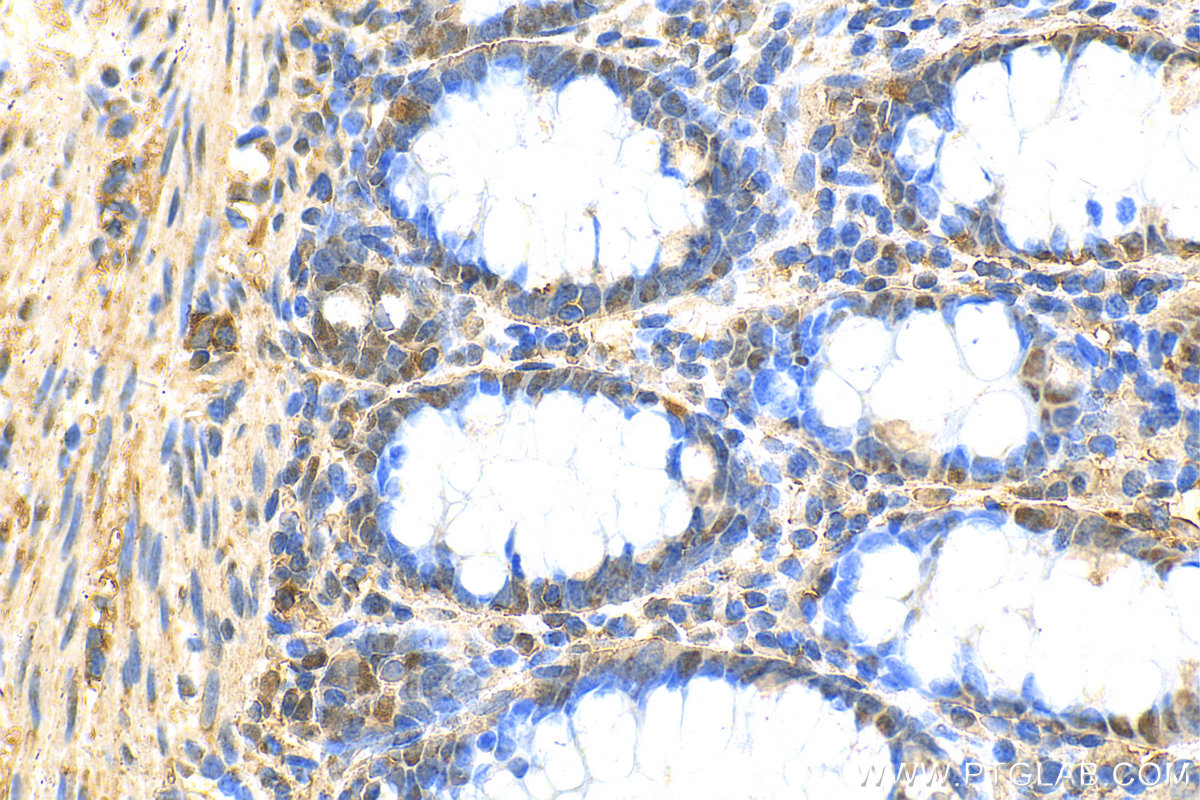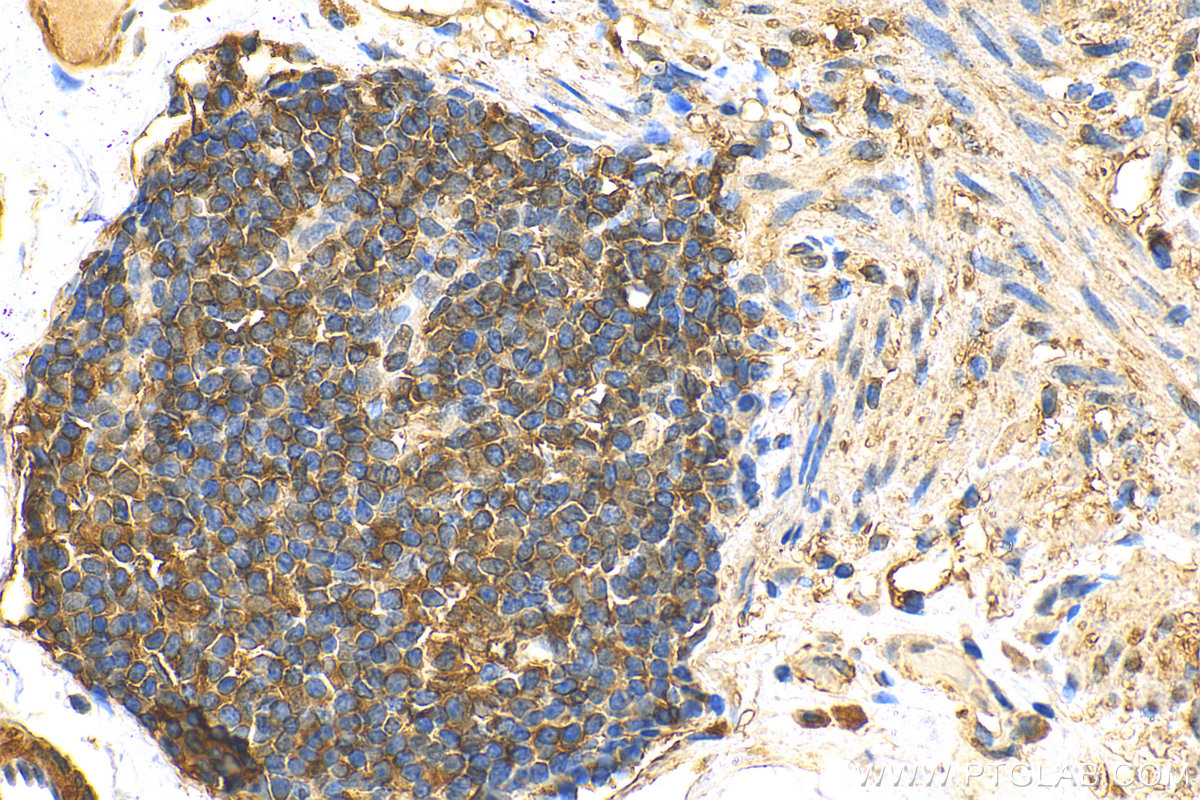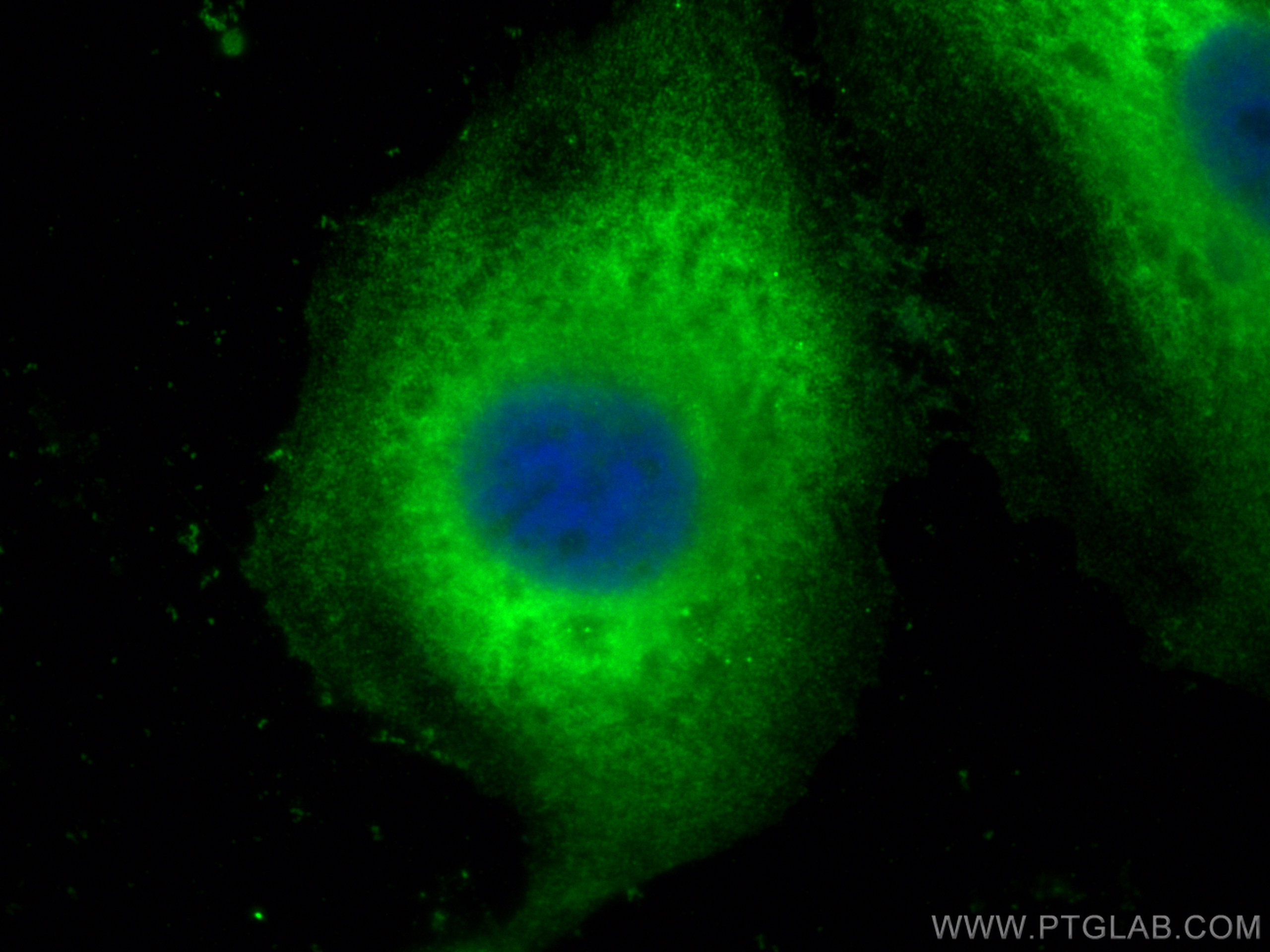ENSA Polyclonal antibody
ENSA Polyclonal Antibody for WB, IHC, IF/ICC, ELISA
Host / Isotype
Rabbit / IgG
Reactivity
human, mouse
Applications
WB, IHC, IF/ICC, ELISA
Conjugate
Unconjugated
Cat no : 14518-1-AP
Synonyms
Validation Data Gallery
Tested Applications
| Positive WB detected in | mouse brain tissue, COLO 320 cells, HeLa cells |
| Positive IHC detected in | human small intestine tissue, human colon tissue Note: suggested antigen retrieval with TE buffer pH 9.0; (*) Alternatively, antigen retrieval may be performed with citrate buffer pH 6.0 |
| Positive IF/ICC detected in | HeLa cells |
Recommended dilution
| Application | Dilution |
|---|---|
| Western Blot (WB) | WB : 1:200-1:1000 |
| Immunohistochemistry (IHC) | IHC : 1:50-1:200 |
| Immunofluorescence (IF)/ICC | IF/ICC : 1:200-1:800 |
| It is recommended that this reagent should be titrated in each testing system to obtain optimal results. | |
| Sample-dependent, Check data in validation data gallery. | |
Product Information
14518-1-AP targets ENSA in WB, IHC, IF/ICC, ELISA applications and shows reactivity with human, mouse samples.
| Tested Reactivity | human, mouse |
| Host / Isotype | Rabbit / IgG |
| Class | Polyclonal |
| Type | Antibody |
| Immunogen | ENSA fusion protein Ag5982 |
| Full Name | endosulfine alpha |
| Calculated Molecular Weight | 14 kDa |
| Observed Molecular Weight | 19 kDa |
| GenBank Accession Number | BC004461 |
| Gene Symbol | ENSA |
| Gene ID (NCBI) | 2029 |
| RRID | AB_10838808 |
| Conjugate | Unconjugated |
| Form | Liquid |
| Purification Method | Antigen affinity purification |
| Storage Buffer | PBS with 0.02% sodium azide and 50% glycerol pH 7.3. |
| Storage Conditions | Store at -20°C. Stable for one year after shipment. Aliquoting is unnecessary for -20oC storage. 20ul sizes contain 0.1% BSA. |
Background Information
Endosulfine alpha (ENSA) belongs to the highly conserved c-AMP-regulated phosphoprotein (ARPP) family and was originally identified as an endogenous ligand for the sulfonylurea receptor, which regulates insulin secretion and glucose metabolism.ENSA not only regulates the cell cycle by interacting with microtubule-associated serine/threonine protein kinase-like (MASTL) enzymes, but also influences tumor growth through its own methylation. Recent studies have shown that ENSA is an important regulator of cholesterol biosynthesis in triple-negative breast cancer (TNBC) and that it triggers tumor growth by promoting cholesterol biosynthesis in TNBC.
Protocols
| Product Specific Protocols | |
|---|---|
| WB protocol for ENSA antibody 14518-1-AP | Download protocol |
| IHC protocol for ENSA antibody 14518-1-AP | Download protocol |
| IF protocol for ENSA antibody 14518-1-AP | Download protocol |
| Standard Protocols | |
|---|---|
| Click here to view our Standard Protocols |








